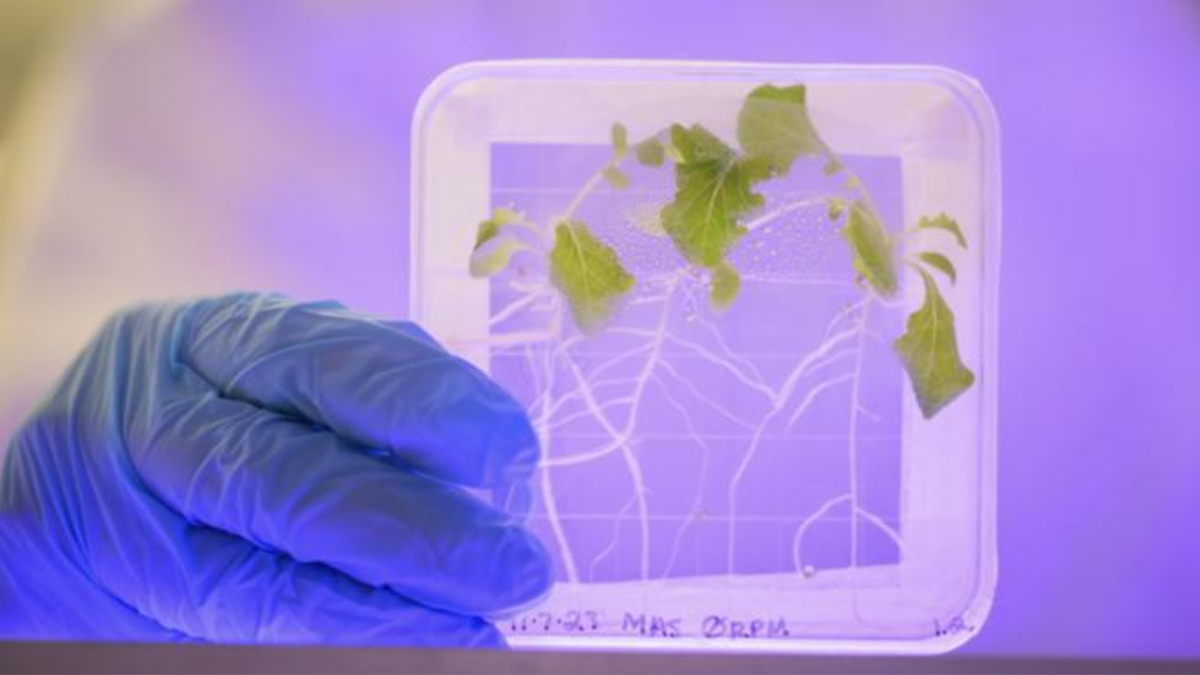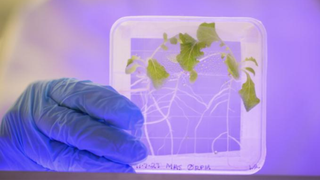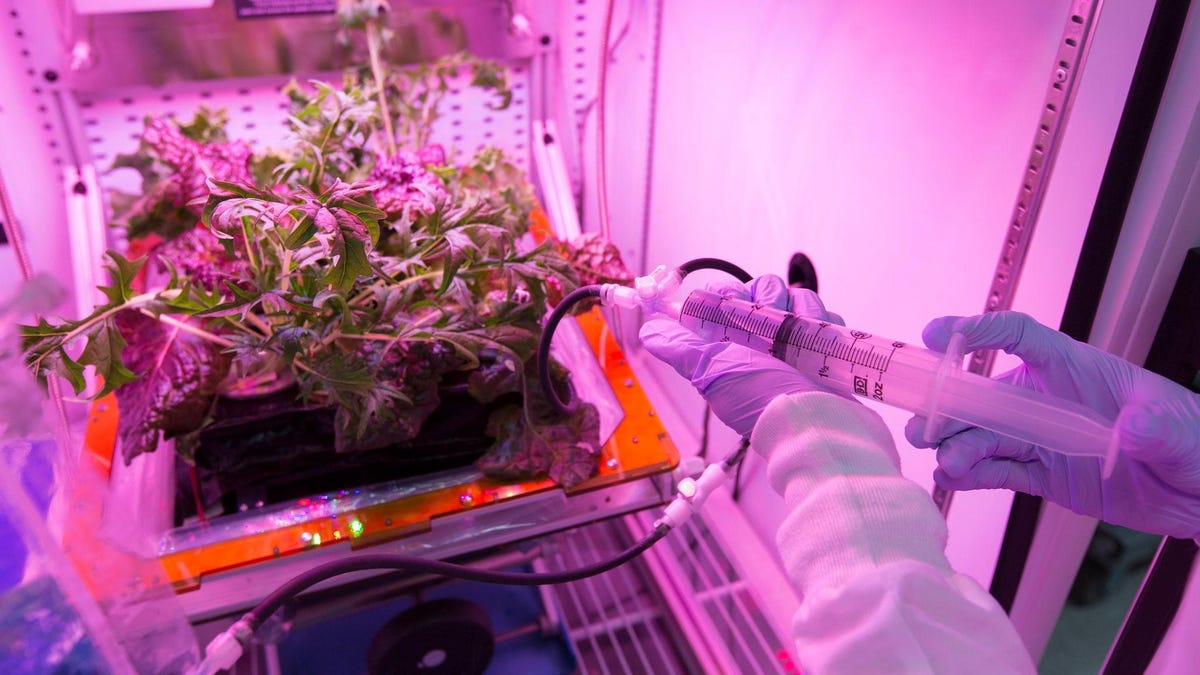
A new study has shown that microgravity, the condition in which International Space Station (ISS) astronauts live, can make lettuce more vulnerable to pathogens. The research could have a big influence on future crewed space missions to the moon and eventually Mars.
Currently, ISS crew members eat salad greens that have been grown on the space station in temperature-controlled environments. However, new research has shown that plants exposed to simulated microgravity are more susceptible to infections from Salmonella as their stomata remain open under these conditions.
The failure of UD1022 (a helper bacteria used to assist plant growth and defend against bacterial colonizers) to close stomata under simulated microgravity may overwhelm the plant and make it unable to communicate with each other, helping Salmonella invade a plant. This could lead to foodborne illness outbreaks on space missions.
The study conducted by the University of Delaware researchers involved growing lettuce in conditions simulating the weightless environment of the ISS. The plants exposed to simulated microgravity were found more susceptible to infections from Salmonella as their stomata, from where they breathe, remain open under space conditions.
The concern is not just about the well-being of astronauts but also the possibility of a foodborne illness outbreak derailing a space mission. The study conducted by the University of Delaware researchers involved growing lettuce in conditions simulating the weightless environment of the ISS. Surprisingly, they found that Salmonella could enter leaf tissue more easily under space conditions than on Earth and so after rotating, which confused the plant, their stomata was observed to be closed.
The researchers also introduced a helper bacterium called B. subtilis UD1022, known for promoting plant growth. However, in space-like conditions, UD1022 failed to protect plants from Salmonella infection.



